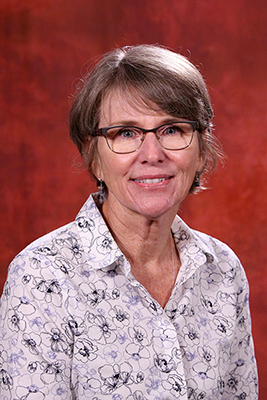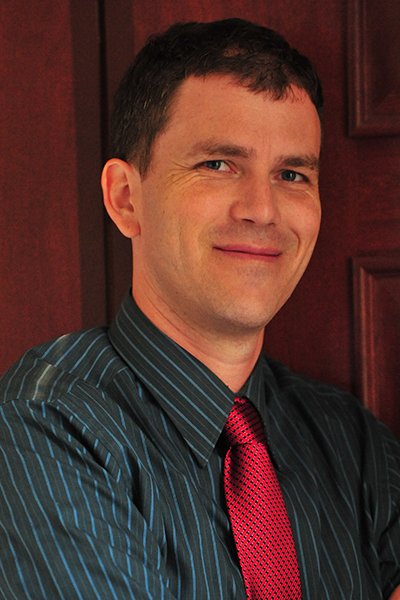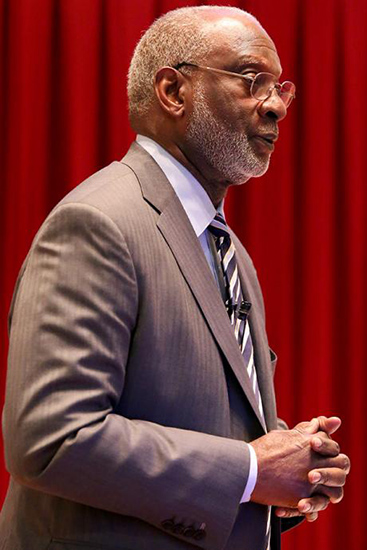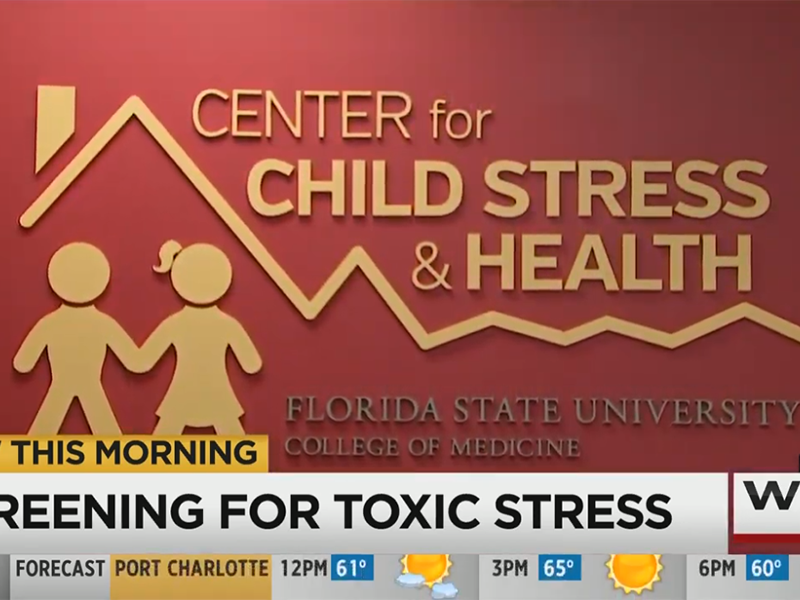In case you missed them, here are some recent news items about the College of Medicine and its faculty and students.
- Jonathan Appelbaum, professor and chair of the Department of Clinical Sciences, wrote an op-ed for the Tallahassee Democrat about the implications of a proposed change to Medicare Part D that would limit access to vital HIV medications.
Tallahassee Democrat: Your turn: Altering Medicare Part D could harm Floridians living with HIV
- Thesla Berne-Anderson, director of college and pre-college outreach at the College of Medicine, was named the 2019 staff recipient of FSU’s Dr. Martin Luther King Jr. Distinguished Service Award. She was nominated for her efforts to increase diversity at the college through the development of the SSTRIDE program.
FSU News: FSU honors winners of 2019 Dr. Martin Luther King, Jr. Distinguished Service Awards
- The New York Review of Books cites Associate Professor Joseph Gabriel in an article analyzing why medicine is so expensive.
New York Review of Books: Why is Medicine So Expensive?
- The College of Medicine hosted its annual student-run Racism Awareness Week in early January. Former U.S. Surgeon General David Satcher was the keynote speaker of the week-long event, which drew the attention of local media.
WTXL: FSU medical students observing Racism Awareness Week (video)
Tallahassee Democrat: Former U.S. Surgeon General Satcher speaks at FSU’s College of Medicine
- The College of Medicine’s Center for Child Stress & Health in Immokalee recently was featured on WINK News. Psychologist and Clinical Associate Professor Javier Rosado discussed the center’s efforts to screen kids for toxic stress and provide clinical resources for patients and their families.
WINK News: Screening for toxic stress (video)
- A committee of the Florida Board of Medicine gave preliminary approval to eliminate questions about past treatment of problems with mental health and substance abuse that are asked during physicians’ applications for licensure. Dean John P. Fogarty commented on how such questions can create a stigma that deters future physicians from seeking help for mental health issues.
The News Service of Florida: Change seeks to remove stigma for doctors
- A study from Yi Ren, professor of biomedical sciences, examines why the immune system’s response to a spinal cord injury may cause further damage long after an accident. The findings were published in the journal Nature Neuroscience.
FSU News: FSU research sheds light on spinal cord injuries
ScienceDaily: Shedding light on spinal cord injuries
Neuroscience News: Shedding light on spinal cord injuries
- Nicole Bentze, the new dean of the College of Medicine’s Sarasota Regional Campus, sat down with Ruth Lando of Style Magazine to talk about Bentze’s new appointment and the med school’s holistic approach to medical education.
Style Magazine: Coffee talk with Dr. Nicole Bentze
- Associate Professor Angelina Sutin made recent headlines for a study and award. She received a $3.8 million grant from the National Institute on Aging of the National Institutes of Health to study why people with Latino backgrounds have a 50 percent greater risk of developing Alzheimer’s disease than non-Latino whites.
FSU News: Understanding a high-risk Alzheimer’s population
FSU Headlines: Latinos are more at risk for Alzheimer’s, and FSU researchers want to know why (audio)
Sutin also led a study that suggests a major link between personality traits, attitude toward others’ body weight and the way those beliefs are expressed in social interactions.
FSU News: Personality type could shape attitudes toward body weight of others
Medical News: Researchers suggest link between personality type and attitude toward others’ bodies
ScienceDaily: Personality type could shape attitudes toward body weight
- Alfred Gitu, director of the FSU College of Medicine Family Medicine Residency Program at Lee Health, talked to NBC2 in Fort Myers about the purpose of residency programs and graduate medical education.
NBC2: What is a resident physician? (video)
Florida Weekly also featured Gitu and the residency program in early December. The article shares the medical journeys of some of the residents and discusses the importance of training doctors who will stay and practice in the community.
Florida Weekly: Opting in: The next generation of family doctors
- The Tallahassee Democrat shared the story of first-year medical student Brian Thedy, who powered through the New York City Marathon – his first marathon – while managing Type 1 diabetes.
Tallahassee Democrat: Diabetes doesn’t slow marathoner, FSU medical student
- Professor and Vice Chair for Research Heather Flynn is the principal investigator on a grant to help develop a sustainable screening and treatment model to address unmet maternal mental health needs across Florida.
Brevard Business News: FSU researcher aims to improve maternal mental health outcome through screenings
- Benjamin Kaplan, internal medicine clerkship director at the Orlando Regional Campus, wrote two blog posts for Orlando Health with the help of med students Samantha Eichelberger and Jordan Carbono. One discusses simple strategies to maintain a healthy diet during the holidays; the other is about the physical and mental health benefits of walking.
Orlando Health: How to maintain a healthy diet during the holidays
Orlando Health: Walking: A simple but effective exercise for physical and mental health
- The tragic shooting that occurred in Tallahassee in early November coupled, with the struggle of many to recover from Hurricane Michael, created a growing need for 2-1-1 Big Bend’s Mental Health Navigator. The service aids callers in finding care for mental health needs and was made possible by a partnership with the FSU College of Medicine and United Way of the Big Bend.
Tallahassee Democrat: 2-1-1 Big Bend provides support network after trauma
- A recent survey found that breastfeeding support for hospital employees is increasing, except when it comes to providing on-site child care. Joan Meek, associate dean for graduate medical education, gives her perspective on the survey implications.
Healio: Breastfeeding support for hospital employees increasing
- Indian River Medical Center is launching an expansion of its medical education program. Pending the outcome of the hospital’s merger-in-progress with the Cleveland Clinic, future graduate residencies and fellowships could be available. Indian River is also expanding its third- and fourth-year medical school rotations. Students at the College of Medicine’s Fort Pierce Regional Campus currently do rotations there.
Vero Beach Newsweekly: Dr. George Mitchell named to lead expansion of Indian River hospital’s medical education program
- College of Medicine alumna Rachel Bixler (M.D., ’11) won two 2018 Best of the Forgotten Coast Awards as voted on by the readers of The Star newspaper in Port St. Joe. Bixler was voted Best General Practice Doctor and Best Family Medicine Physician Office by residents of Mexico Beach, Gulf and Franklin Counties.
The Star: SHH’s Bixler honored with Best on the Forgotten Coast Award
- Reuben Holland, emergency medicine specialist and clerkship faculty member at the Sarasota Regional Campus, was named Sarasota Memorial Hospital’s 2018 Physician of the Year.
Sarasota Herald-Tribune: Business People
- Wade Douglas, professor and program director of the FSU College of Medicine General Surgery Residency Program at Tallahassee Memorial HealthCare, was inducted into the American College of Surgeons Academy of Master Surgeon Educators.
Tallahassee Democrat: Briefcase
- The Chronicle of Higher Education included Zucai Suo’s recent hire in its list of national faculty appointments and transitions. Suo joined the College of Medicine as Eminent Professor and Dorian and John Blackmon Endowed Chair in Translational Research.
The Chronicle of Higher Education: Transitions





